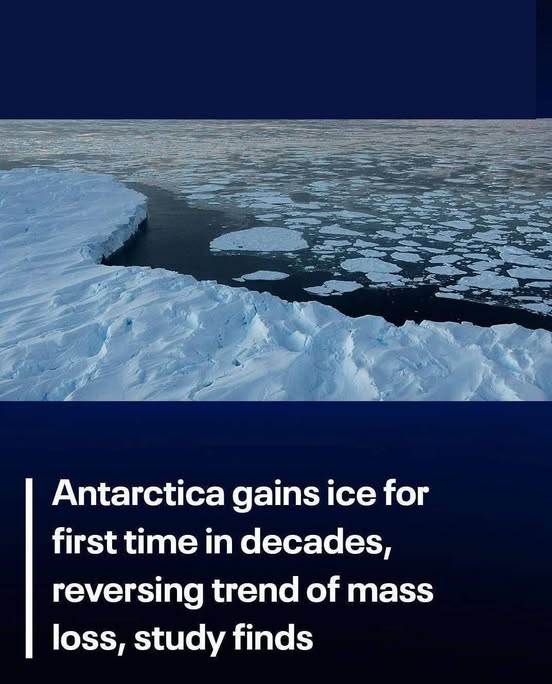Antarctica Records First Ice Gain in Decades — But Scientists Urge Caution

After nearly two decades of consistent ice loss, Antarctica has seen a surprising reversal. Between 2021 and 2023, the Antarctic Ice Sheet (AIS) experienced a net gain of approximately 107.79 gigatonnes of ice per year, marking the first such increase in decades.
This unexpected trend has drawn attention from climate scientists around the world. The change was detected using advanced satellite gravimetry from NASA’s GRACE and GRACE-FO missions, which track variations in Earth’s gravity to monitor ice mass with remarkable precision.
What Caused the Ice Gain?
The sudden uptick wasn’t the result of a cooling trend or a shift in climate policy—it came down to unusually heavy snowfall. The increased precipitation led to more surface accumulation, temporarily slowing Antarctica’s contribution to global sea-level rise by an estimated 0.30 millimeters annually.
While the numbers sound promising, experts caution against celebrating too soon.
A Temporary Shift, Not a Turnaround
Despite the gain, scientists emphasize that this does not signal a long-term recovery. The anomaly was driven by short-term weather fluctuations rather than lasting climatic changes. In fact, ongoing global warming continues to threaten the stability of the Antarctic region.
Rising air and ocean temperatures are still reducing snowfall over time and accelerating the melting of ice shelves, particularly in West Antarctica and vulnerable parts of East Antarctica. These processes remain the dominant forces driving sea-level rise.
The Bigger Picture: Antarctica Remains at Risk
This brief period of ice gain should be viewed as an exception—not a new trend. According to climate researchers, unless global emissions are drastically reduced, such anomalies are unlikely to repeat often or sustain meaningful impact.
Antarctica’s long-term outlook remains fragile, and its future will be shaped by the choices humanity makes today. Temporary gains are encouraging, but they do not undo years of decline or the ongoing effects of the climate crisis.